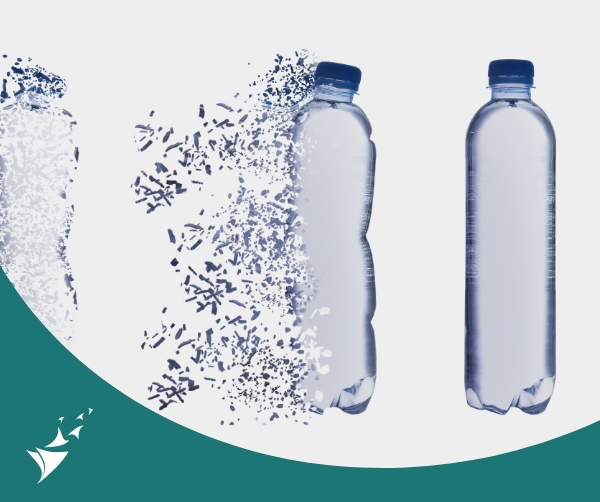A randomly discarded plastic bottle can be deadly for animals. On the other hand, one thrown into the correct bin can have a new life. Every minute, a million plastic PET bottles are thrown away as waste on our planet. In Romania, despite knowing how, where, and having the means to recycle, our country imports waste from all over Europe. This happens because more than half of the plastic waste from Romanians usually ends up in landfills. Understanding the importance of separate collection and how recycled plastic bottles gain a new life is the focus of a new episode in the 'Recycle to Save' campaign.
After separate collection, plastic reaches a sorting station. From there, it's taken to the recycling facility. It's shredded into plastic flakes and disinfected. Only the cleanest type of plastic is turned into granules.
In an ideal world, everyone would separate their waste, but the reality is different. This means plastic is extracted from household waste, where sorting centers exist. Bottles are manually sorted by color. At the sorting station in Oradea, this is the result after just one day of collecting waste from the county.
Szentes Istvan, representative: 'Here we have recyclable waste that wasn't separated. It came together with residual waste.' Plastic that wasn't separately collected and was thrown into household waste is initially contaminated. It means it can't be recycled and turned into PET bottles because it's very dirty. But there are solutions even for these cases. At the sorting station, dirty plastic is packed and sent further to the recycling station. The same happens with clean PET bottles.
Stages of the recycling process
The next step - the recycling station. At this recycling facility, there are currently around 10,000 tons of PET bottles, but approximately 70% of them come from other European countries. This is because not all Romanians separate their waste. And the recycling factory wouldn't survive solely on Romanian plastic. So, it imports raw material - waste - from all over Europe, especially from Italy, Greece, and the United Kingdom.
Anda Stancu, recycling company representative: 'We're not operating at full capacity. We're still waiting for more PET waste to reach us.' Waste from all over the country reaches this recycling facility. So, it's very likely that the bottle you threw away in Oradea might be here now.
Once at the recycling station, waste goes through no less than 11 different sorting processes.
Anda Stancu, recycling company representative: 'Sorting is an extremely important stage of the recycling process because 100% pure PET should result from sorting.'
Impurities, labels, and caps are eliminated through different processes. But even these are repurposed. Nothing is wasted; everything is transformed.
Anda Stancu, recycling company representative: 'After sorting, there's a cold wash, a pre-wash of PET waste, followed by grinding in mills. The PET is shredded into small pieces, then thoroughly washed in hot water to ensure maximum cleanliness.'
The result is plastic flakes. But to return to the shelves as bottles, there's one more step. The cleanest and best-quality plastic is transformed into granules. These granules are sold to PET manufacturers who produce these tubes from them. That's how we end up back with the bottles we buy from the store. That was the journey of clean plastic. But what happens to the dirty one?
These wastes are contaminated and of lower quality. However, even from these, synthetic fiber can be made.
Anda Stancu, recycling company representative: 'From waste that comes with higher contamination, we manage to create other products. From car mats, upholstery, car seat fillings to car filtering systems. But we don't stop there. Hygiene products, fillings for baby diapers. It can also be found as pillow or mattress stuffing. So, even our home carpet can have synthetic polyester fiber made here in Buzău.'
Separate collection is the key to efficient recycling. The cleaner the products, the better they can be reused. Each person in the European Union generates around 35 kg of plastic annually. Of these, only 14 kg are recycled. The packaging recycling rate in Romania is only about 40%.
Source: https://www.euronews.ro/articole/drumul-pet-ului-de-la-gunoi-inapoi-la-raft-rata-de-reciclare-a-ambalajelor-in-rom









